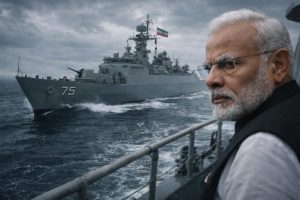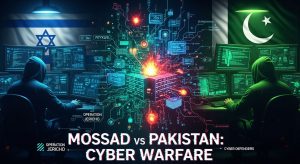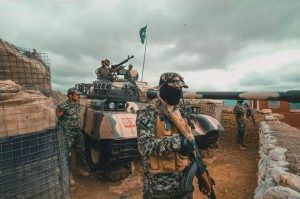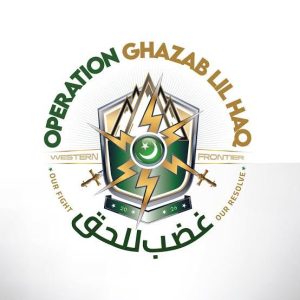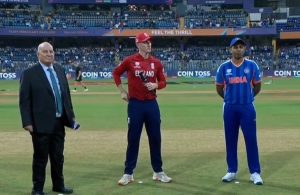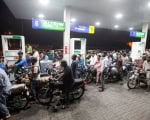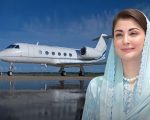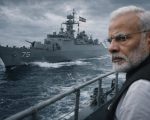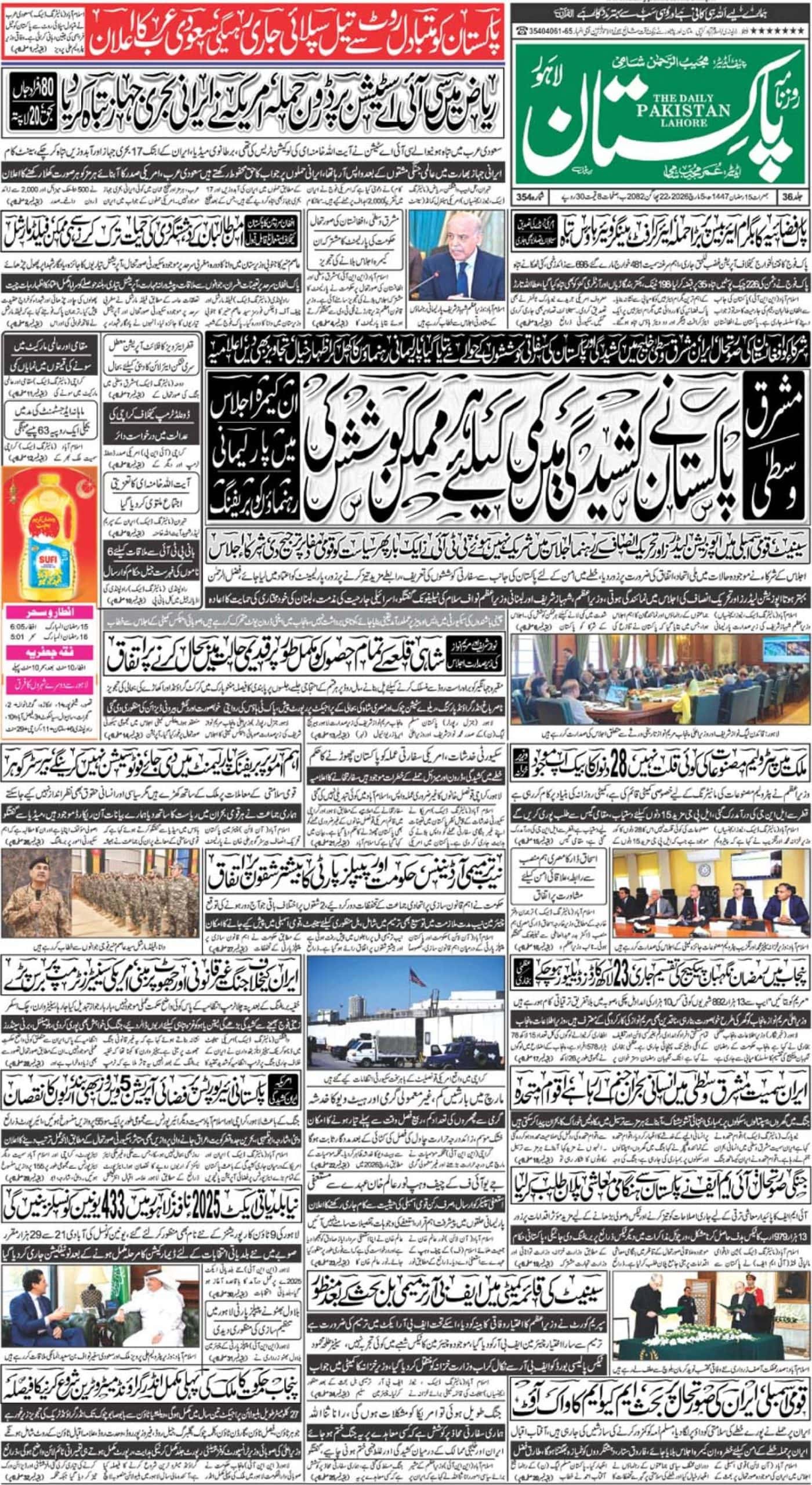This Independence Day, we sit down with Mr Anwar Rammal, Chairman of Asiatic Public Relations Network (Pvt.) Ltd., and a man born in the pre-partition subcontinent, as he takes us through the transformation of Pakistan in general, and Karachi in particular, from the era before partition to a lively and pulsating city in the 1960s, and to the metropolitan hub that it is today.

Tell us a bit about yourself and how life was before the partition.
I was born in a vibrant, cosmopolitan Karachi in the mid-thirties. Karachi was one of the jewels of the British Empire before partition and was multicultural. The population was only 3.5 million with a medley of pluralistic flavours of communities including Muslims, Hindus, Christians, Jews, and Buddhists, among others. It was a time when all faiths co-existed harmoniously, and all religious leaders and followers together celebrated their festivals across the city.
There were many groups of wandering singers and musicians who would wake up before daybreak, calling upon people to awaken to the goodness of life. They sang in Sindhi, “Asoor jo Ramm reyjo banda punje preetam khe rejoy banda”. Their common call was, ‘This is the time when you should all get up and remember God.’
My father, Hassan Ali G. Rammal had many Hindu, Parsi and Gujarati friends. He was a writer of songs and plays, and used to write in Hindi and later in Gujarati as well. He was a member of the Shankar Sangeet Samaj which was based in Gordhandas Market and he used to take my sister and me to see the performances of various actors. The members were all Hindu businessmen and office executives, except my father. He would take me to Bhajan events, the Theosophical Society and classical music parties at a time when arts and culture thrived vibrantly.
This beautiful life that I’ve described was the time before partition, a time when Karachi was declared the cleanest city in Asia! Yes. This is true. There were only two main roads, Bunder Road and Burns Road, and these used to be washed every night by the fire brigade. The city was peaceful and safe and it was a genuine pleasure to be a citizen of this city.
My schooling started at Narain Jaganath Vaidia High School (also known as NJV High School). It was situated opposite where the present campus of Dow Medical College stands, and after partition, it moved to its present location on Bunder Road near Karachi’s Theosophical Society.
Initially, English, Sindhi and Persian were taught but later, subjects of history, geography, arithmetic and geometry were added to the curriculum. And after the partition, instead of Persian, Arabic was taught. Our English teacher was Benjamin, a Jew. Our teachers for other subjects were from Sindh who came to Karachi for further studies like Law, and would stay in Metharam Hostel, and they would teach part-time in our school. If they were sick, we used to go and look after them. The monthly fee was 4 annas. The tram fare was 3 paisas. I fondly remember those days!
How did partition affect you, your family and your community at that time as a whole?
In 1947, at the time of the partition of India and Pakistan, I remember when the first riots began in Karachi. I was only eleven years old and was at the school that day. I suddenly noticed that the parents of my classmates had come early to take their children home. The teachers also left in a hurry. I found out that riots have broken out throughout the city. I waited for some time for my father and then left on my own. No trams or buses nor any other form of transport were operating.
I had no choice but to start walking home, and while walking, I came across many people breaking in and looting shops. The police were firing in the air. I was scared but I didn’t have a choice but to keep walking. While walking I found a bench at Boulton Market’s tram station. The conductor of one of the trams, who was luckily known to my family, suddenly saw me and asked what I was doing there to which I said, ‘I want to go home.’ He then took me to my house. Thank God for him or I might not have made it home.
When I got home, I immediately asked about my father and was told that he was not able to reach me due to the chaotic situation in the city. As far as our family is concerned, we all were safe during the riots.
However, we were very concerned about our Hindu friends. They stayed at home till the situation calmed down. We would deliver food to them during this tumultuous time. As far as the community is concerned, we had scouts and volunteers to help the families and they also safeguarded areas wherever the community members were living.
As a community, the leaders organized the volunteers wherever Ismailis were living to protect them and therefore we were quite safe and didn’t have any sort of problem.
As the movement for independence almost reached its conclusion in 1947, the city suffered widespread outbreaks of communal violence between Muslims and Hindus, who were often targeted by the incoming Muslim refugees in response to the perceived threat of Hindu domination, and self-preservation of identity.
After the independence of Pakistan in 1947, Hindus and Sikhs migrated to India and this led to the decline of Karachi, as Hindus controlled the business in the city, while the Muslim refugees from India settled down here.
What was life like growing up in Karachi post-partition?
After 1947, Karachi, east of the Suez and west of Bangkok, was the most swinging city in the ‘60s. Dubai didn’t exist and Singapore was a colonial backwater, while Beirut was the only modern and well-established city.
In those days business, entertainment and lifestyles were relaxed and living was luxurious. Hotels and nightclubs were popular entertainment spots. Karachi was dotted with many nightclubs, the most famous among them was La Gourmet at the Palace Hotel. Belly dancers from Beirut would perform there and even at the Taj Hotel every night. Beach Luxury had a club called 007 which would be packed every other day.
There were social clubs established by the British like the Sindh Club, Boat Club, and Karachi Gymkhana. When I started Asiatic Advertising in 1963, I soon became a member of these three clubs and the Golf Club too. 
There were cinemas like Nishat, Bambino, Paradise, Palace, Lighthouse, etc. and many theatres in Karachi. My father’s plays were staged in 5 theatres. There was the Clifton Players theatre group established by the English executives of multinational companies. They staged a play in the theatre at Naval Hospital. I was working with Pakistan Tobacco at that time to establish their creative studio. My boss, Polglaize, invited me to attend the opening night. Sikandar Mirza the President of Pakistan was the chief guest. Both he and his wife came in proper English attire. He wore a tail coat and his wife Naheed came wearing an evening gown.
Life was still peaceful, no riots, no discrimination, and most of the Hindu business houses had Balochi workers who protected them.
I was living in Kharadar and would go with my friend to the Aga Khan Gymkhana in Gandhi Garden on my bicycle every evening to play table tennis and badminton. Life was good.
What social environment and political changes have you noticed during this time? What are your thoughts about recent times and the past?
In the past when elections were held, we used to take part and support the candidates of our area. We used to say in Balochi language in the Lyari area “Vote bithe” which translates to “Give your vote”. It was fun. Especially at night we would gather with candidates in Kharadar at pan shops and start canvassing without any fear. In those days, we would work for candidates contesting for Municipal Corporation and Sindh Assembly seats.
I feel intense regret for that life of coexistence that we’ve lost. When I reflect upon the upheaval and violence in the city in the last few decades, and the overall law and order situation, it pains me.
The fondest memory/memories of your life
When I returned from London after a year, back in 1961, there were a limited number of cinemas but quite a few nightclubs (which were eventually closed down in 1977). Sunday jam sessions at hotels, clubs and at private homes with live bands like Keynotes were the lifestyle. Karachi had everything to offer to enjoy our young life on weekends and holidays, and it was quite safe in the ’60s to pick up a taxi at two in the morning, or for friends to drive us home.
Metropole Hotel was famous for jam sessions with foreign singers and musicians like Elvis, Cliff Richards, Ricky Nelson, jazz groups, and other artists who would visit Karachi and only Karachi.
At Christmas time, we used to dance at the Loco Club which belonged to the Christian Community. At midnight, we would all go to Church in Clifton to attend the midnight mass.
These are some of my fondest memories of Karachi – the swinging city after independence.
 What message do you want to give to our youth on this Independence?
What message do you want to give to our youth on this Independence?
Acquire the highest level of education and read books. Remain positive and don’t be afraid to help create change.
Khaliqdina Hall and Library

The reading room and community hall were built with a donation by Ghulam Hoosain Khaliqdina and with the help of municipal funds. The Hall was used as a theatre where theatre groups would stage nataks (dramas, plays). My father, Hassan Ali Rammal, was a member of the Rajdeep Sangit Samaj. He wrote a drama and songs in Hindi, the title of the drama was “Doosri Shadi” (Second Marriage) and was staged in Khaliqdina theatre on 10th August 1947 just before the partition. He was also a member of the Shankar Vijah Sangeet Samaj and he was an honorary drama and songwriter. They staged his drama called “Jeevan Leela”. It was also staged 12 times by various theatre groups. All the profits from ticket sales were donated to various institutions. There were five more theatres where various groups would stage the dramas.
Now unfortunately we have only two active theatres, the National Academy of Performing Arts (NAPA) and the other one is the Arts Council.
Tramways

During the British Raj, in 1905, The East India Tramway Company introduced a petrol-powered tram in Karachi and the first tram in the world.
In 1949, the whole tramway system was sold to the Mohamedali Tramways Company (MTC) owned by Sheikh Mohammad Ali.
The tram was a standard mode of transport, as was the horse-drawn carriage. Only the elite had cars. A few young men owned motorcycles. Both men and women went on bicycles, the most common transport type. The tram fare in the 1950s was one anna (less than one cent).
MTC was finally shut down in 1975.
Saddar/ Empress Market
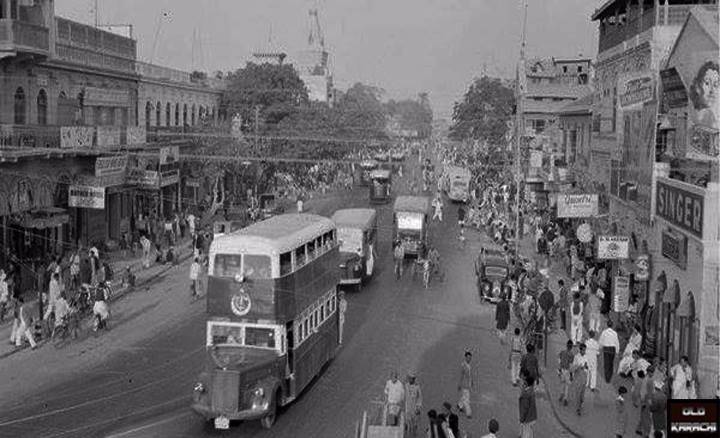
Saddar is located in the heart of Karachi. Empress Market is in Saddar and is still one of the most visited markets. It sells everything from meat, and fish to vegetables, fruits, textiles etc. Even today it is extremely crowded throughout the week despite being located in a highly congested area.
Letter Post Boxes

The roadside letter post boxes were introduced during British rule. Adhesive stamps pre-paid made payment of postage easy and deposited in the letter boxes which were cleared every day by the General Post Office (GPO) and delivered to the addressee by a postman on foot or on cycle.


